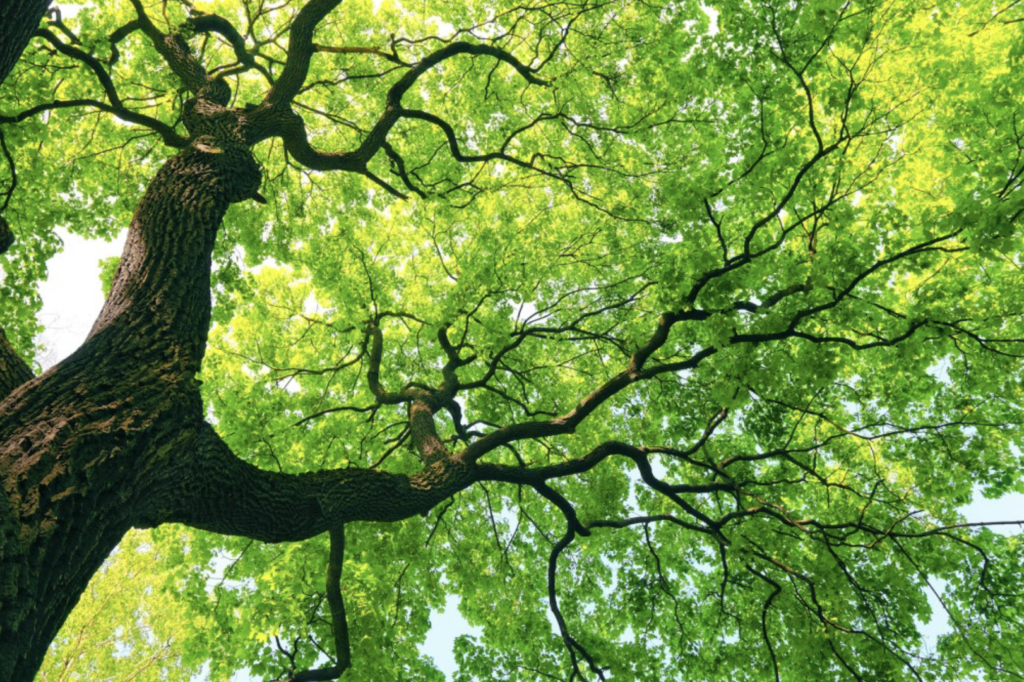By Rachael Leverton
Trees – Heroes of Nature
Trees have graced our planet for over 370 million years, offering a range of benefits that render them indispensable to life as we know it. National Tree Week (25th November-3rd December) celebrates the many reasons why trees are the champions of the natural world and why we should all plant a tree today. Every school student learns that trees play a pivotal role in the process of carbon dioxide reduction. Through photosynthesis they absorb carbon dioxide and release oxygen, a vital element for most organisms on Earth. A mature leafy tree can produce as much oxygen in a season as 10 people inhale in a year. By cleansing the air, trees essentially act as the lungs of our planet. Trees are formidable warriors in the battle against climate change. By absorbing and storing carbon dioxide, they mitigate the greenhouse effect, helping to cool our warming planet. Forests worldwide store more than 296 gigatons of carbon, acting as crucial carbon sinks. Forests, rich with trees of all kinds, are hotspots of biodiversity. They provide habitat, food, and protection to countless species, from the tallest giraffes nibbling on treetop leaves in Africa, to the smallest beetles burrowing in the bark of rainforest trees. Without trees, many of these habitats would be lost, leading to massive declines in biodiversity. Trees play an essential role in maintaining the health and integrity of our soil. Their root systems anchor the soil, preventing erosion, particularly in areas susceptible to landslides or during heavy rainfall. Furthermore, fallen leaves decompose and enrich the soil with nutrients, promoting a healthy ground ecosystem. Trees significantly influence the water cycle. They absorb rainfall and produce water vapour through transpiration, which is then released into the atmosphere. This process not only aids in cloud formation but also ensures that water is recycled back into our environment through rain, maintaining a balanced ecosystem. In urban environments, trees act as natural air conditioners. Their shade cools down streets and cities, reducing the need for air conditioning in nearby buildings and lowering energy costs. Moreover, trees absorb and block sunlight, reducing the heat island effect common in urban areas. Recent studies have highlighted the health benefits associated with trees. Proximity to green spaces with trees has been linked to reduced stress, lower depression rates, and increased physical activity. Furthermore, trees filter out pollutants, providing cleaner air and reducing the rates of respiratory illnesses. The multifaceted roles trees play in sustaining life on Earth means that we should be protecting them and planting more. In a rapidly changing world they are the stewards of our world and it is our duty to recognize their value, protect them, and ensure they continue to thrive for generations to come.
Happy gardening.

